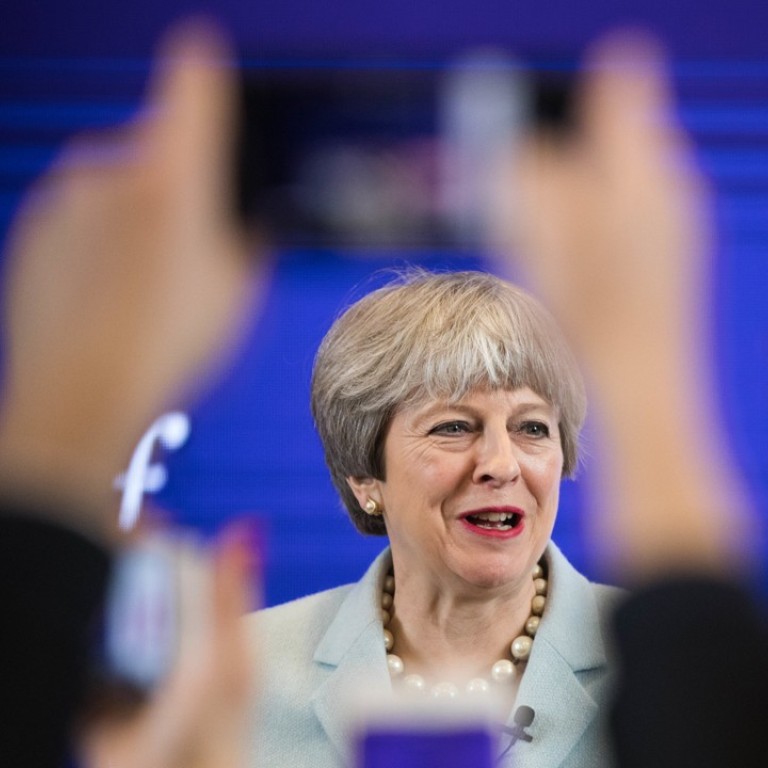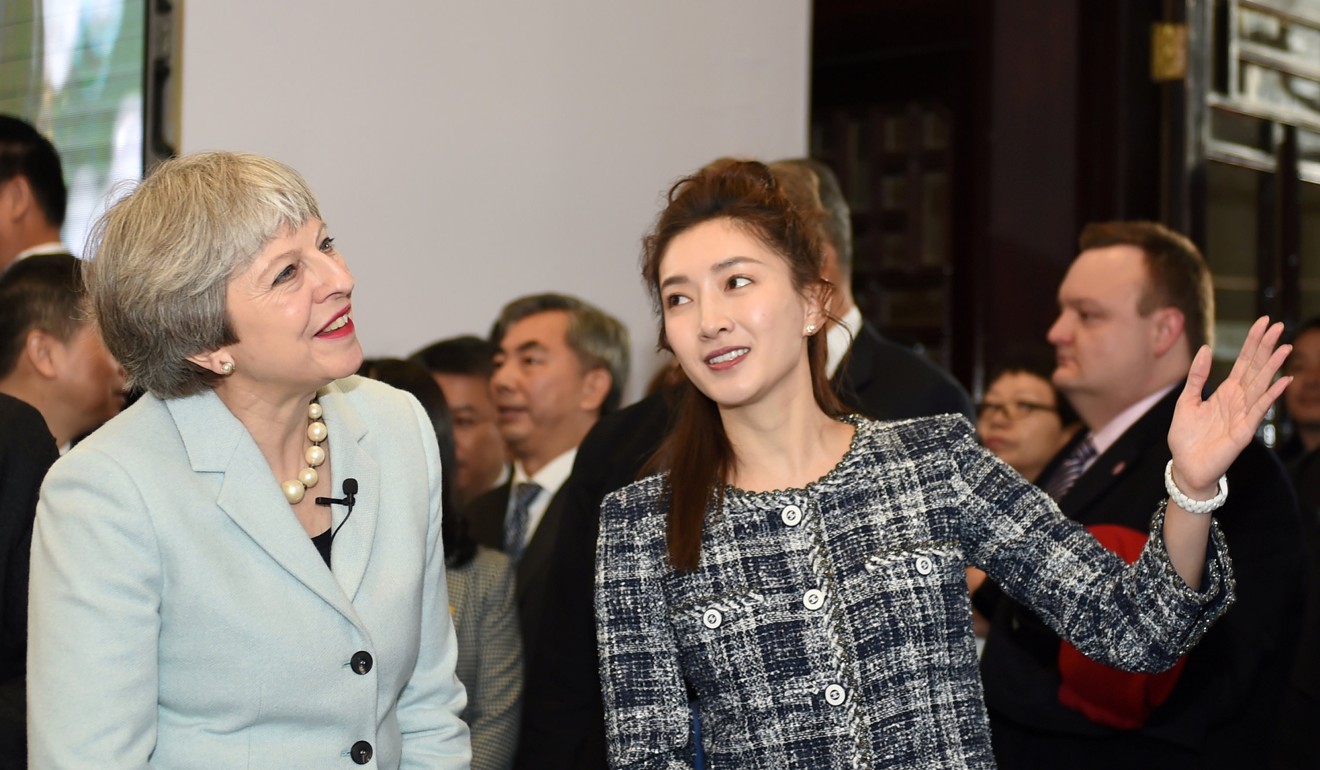
What Chinese university town Wuhan has to do with Theresa May’s trade mission
Deals announced during UK leader’s visit include extending maths teacher exchange programme and a campaign to promote English-language learning
British Prime Minister Theresa May is expanding education links between the United Kingdom and China as part of a mission to secure free-trade deals with Beijing.
May began a three-day China trip in Wuhan, Hubei province, on Wednesday before heading to Beijing, where she will meet Premier Li Keqiang. She will finish her tour in Shanghai.
In a speech at Wuhan University, May touted the idea of more exchanges between young people from China and the UK to ensure the “golden era of cooperation” between the two nations.
She said education exchanges were a key part of relations between the United Kingdom and China.
Visiting foreign leaders do not often stop in Wuhan, but the city in central China is home to more than 120 higher education institutions and more than a million students, making it an important university town. Its Wuhan University and Huazhong University of Science and Technology are on the list of top 10 universities in China.
Some 160,000 Chinese are studying in Britain meanwhile, and they generate £5 billion (US$7.05 billion) of income for the UK annually.
May’s entourage includes a representative from the University of Manchester, based in Wuhan’s sister city, and a business delegation, including representatives from BP and Jaguar Land Rover.

Among the deals to be signed, the education programmes are estimated to be worth £550 million. They include extending a maths teacher exchange programme by two years to 2020 and a campaign promoting English-language learning in China. Those deals are expected to create 800 jobs for Britain.
May said the close ties between Britain and China were reflected in their relationship on education.
“The agreements we have signed today will build on that and enable more children and more young people than ever to share their ideas about our two great nations,” May said.
“And by teaching children to speak our languages we will ensure that our golden era of cooperation will endure for generations to come.”
In addition to 29 Confucius Institutes – which are funded by Beijing and offer language and cultural classes – Chinese is part of the curriculum at more than 600 primary and high schools in the UK.
The maths teacher programme began in 2014 and has seen four rounds of exchanges involving 70 teachers at a time visiting China and Britain for two weeks.
Wang Huiyao, director of the Centre for China and Globalisation, an independent think tank in Beijing, said May’s visit would boost interest among Chinese students in the UK.
“I think Prime Minister May sees that international students not only bring cash and talent for UK companies, but that this is also about fostering future leaders that will be friendly to the UK,” Wang said. He added that some British schools depended on international students for their survival.
Education is one of the UK’s pillar industries and one of its most successful exports.
Wedding planner Sun Haiting said her year of postgraduate study in Sheffield helped to advance her career. Sun studied creative and cultural industries management at the University of Sheffield and said she made a lot of friends and met contacts while she was there, and her English vastly improved.
“I used to organise weddings in China,” she said. “But now, with my language skills and experience, I’m tapping into the overseas market and I plan weddings in the United Kingdom.”
But restrictions on taking up work make the UK less appealing for some prospective students. London has tightened the rules for foreign students applying for work visas and scrapped a scheme that allowed non-EU students to work for two years.
Sophie Su, who is in her second year of high school in Beijing and preparing to study overseas, said she was drawn to the UK because of its culture and the reputation of its universities, but she is worried about work.
“I’m thinking about applying to study in Australia too, because the prospects for working there are better,” she said.
The average cost of studying and living in the United Kingdom for a year is estimated at 300,000 yuan (US$47,400).

